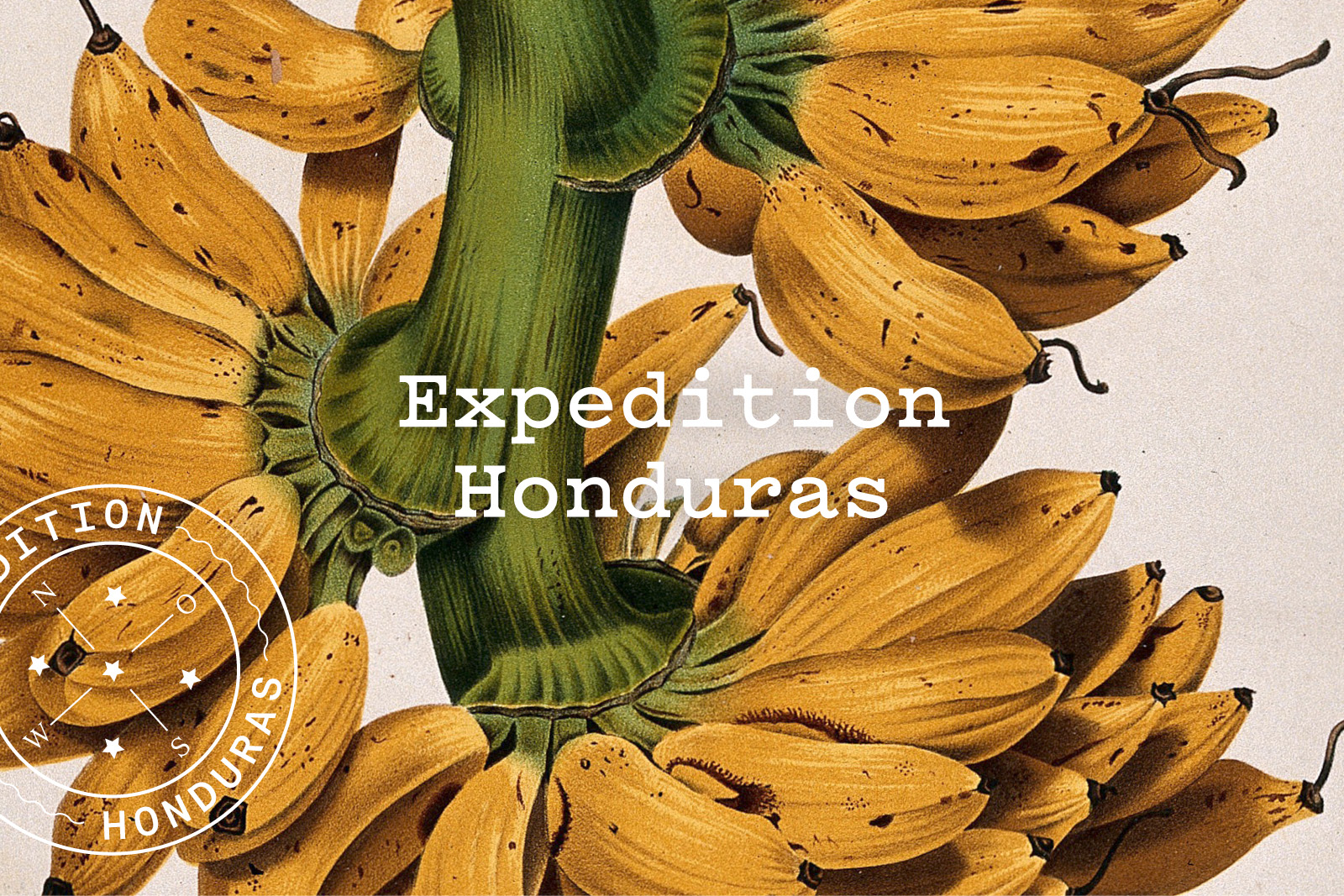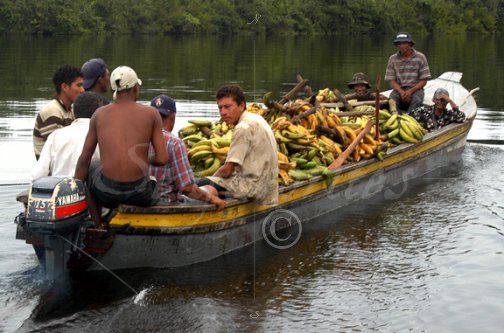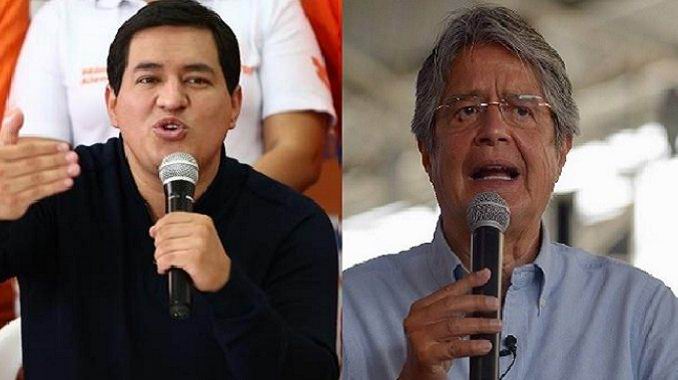Latin America
Related: About this forumEcuador elections: right-wing candidate Guillermo Lasso linked to 49 tax haven companies
Ecuadorean presidential candidate Guillermo Lasso is connected to 49 companies in offshore tax havens, Argentine news daily Página/12 first reported during the country's last election in 2017.
The companies, based in Panama, the Cayman Islands and Delaware, have diverse names that hide Lasso's role.
Lasso, 65, is currently running second to Andrés Arauz, 36, a center-left former Economy Minister, in first-round elections being held today in the nation of 18 million. Runoff voting is scheduled for April 11.
Página/12 reported that between 1999 and 2000 - when former Ecuadorean President Jamil Mahuad dollarized the country's economy and Lasso served as Minister of Finance - Lasso's fortune jumped from $1 million to $31 million.
The right-wing banker candidate is believed to have boosted his fortune by speculating on government bonds ahead of dollarization, which left millions of Ecuadoreans in poverty.
"The financier tried in recent years to tidy up his businesses in order to enter the political arena," the investigative report says. "However, the magnitude of the offshore companies and their profits could implicate him in tax evasion."
In February 2017, in the closing months of former President Rafael Correa's administration, Ecuador became the first country in the world to pass a plebiscite to ban public officials from having assets or capital in tax havens.
At: https://www.telesurenglish.net/news/Ecuadors-Right-Wing-Candidate-Linked-to-49-Tax-Haven-Companies-20170316-0001.html
Ecuadorian presidential candidates Andrés Arauz and Guillermo Lasso.
The center-left and center right candidates, respectively, are running to succeed President Lenín Moreno - who opted not to seek re-election amid severe recession and what's widely considered one of the world's worst Covid-19 pandemic responses.
While Arauz remains ahead in polling by around 4%, the outcome of April 11 runoffs remains uncertain.
Judi Lynn
(164,067 posts)So glad you've caught this information and shared it. Clearly global elites are 100% behind this dirty greedy guy, who has been one of their circle. He's learned his creepy craft well.
If only Perez can outrun him during the run-off.
It's not so far to April 11th. With any luck, and great campaign workers, maybe the progressives can unite successfully to leave this dirtball far in the distance. Ecuador has seen far too many of his kind, and they have mangled the quality of life for the masses almost beyond repair over time.
~ ~ ~
Why is Latin America So Dysfunctional? Part Three – United Fruit Company
By JB Shreve -April 3, 2019
(This is part 3 in my blog series that examines the historical relationship and involvement of the US with Latin America that contributed to the modern dysfunctions of poverty, violence, and instability we frequently observe. Today we look at the United Fruit Company and corporate imperialism and exploitation in Latin America.)
Have you ever heard the term “banana republic?” Banana republic is a term often associated with corruption and dictatorial political regimes. It is a term that was born out of America’s historical relationship with Latin America and specifically through the United Fruit Company.
In the spring of 1899, the United Fruit Company was born. It was formed from the merger of a fruit exporting company based in Boston to a company that owned a network of fruit plantations and railroads in Latin America. The plan was simple and had already proven itself as profitable, albeit on a smaller scale. They would take the inexpensive fruit of Latin America and sell it to the world.
Today it may seem improbable that a fruit company could become a major influencer in geopolitics and statecraft. In the era before refrigeration, however, year-round access to a tropical climate and its fruit meant immense profits in America where bananas were becoming a standard part of the American worker’s diet. Even after the advent of refrigeration, the network and foundations of power and influence that United Fruit Company built in Latin America exercised enormous consequences for the history of America’s relationship with the region.

Governments like Guatemala, Panama, and Honduras incentivized the growth and influence of United Fruit where bananas made up 60% of their total exports. United Fruit Company and the dictators within countries like these worked out an exchange. The dictators repressed the organizing of the labor forces locally while United Fruit acted as the doorway to international markets for the countries’ largest export.
United Fruit dominated the industry with 90% control of the banana import business in the US. They soon controlled the European market as well. In the following decades, the company gobbled up competitors throughout Central America. By 1930 United Fruit was the largest employer in Central America. They owned more land than anyone else in Guatemala. Across Central America and the Caribbean, United Fruit owned more than 3.5 million acres. They dominated portions of nearly a dozen countries in the region. They owned the largest private navy fleet in the world. It was called the Great White Fleet.

For many in Latin America, United Fruit Company became the image of economic imperialism from the United States. Journalists in the countries where United Fruit was most active began referring to the company as “the Octopus” as its reach and influence were impossible to avoid or ignore. In the United States, United Fruit pioneered public relations work to recruit political power brokers to their side and to push their interests in foreign policy. In Latin America, they made friends with dictators and hired mercenaries to enforce their production quotas.
More:
http://www.theendofhistory.net/important_stories_christians_need_to_know/why-is-latin-america-so-dysfunctional-part-three-united-fruit-company/
~ ~ ~
Thank you, sandensea, for finding what we really need to know about this important election. It's so very important, and US citizens know so very little, due to machinations beyond their control, unfortunately, even though their hard-earned tax dollars have help underwrite all the wrong policy taken to keep misery and deprivation for the masses the overriding feature of Honduran life until things improve.




🍌🍌🍌🍌🍌🍌🍌

